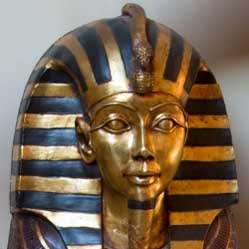Land of My Birth – During the year 1944 (5704-5), some soldiers from the “Jewish Brigade” were stationed in Egypt. This was a Jewish fighting force that was part of the British army. These soldiers contributed not only to the war against the Nazis but also to the people of the Diaspora whom they met wherever they went, trying to prepare them to move to Eretz Yisrael. In general, the Jews of Egypt were religious and sent their children to Torah schools. Alter Safra, who served in the Jewish Brigade, described his meeting with the members of the Beit Midrash named for Rabban Shimon Bar Yochai:
“The Chacham Mar Shalom greeted me pleasantly, and was very happy to meet me, both as a soldier and as a Jew who had come to study… Old and young people sat at the table, and the Chacham taught Chovat Halevavot in Hebrew and in Arabic… In the evening, we sat around the table and I began to tell them about Eretz Yisrael. I felt that I was like the messengers of old who would come from the holy land and tell about the wonders of the land. This was a land that so many people had yearned for but about which they knew so little. The yearning rose up in their hearts once again, and they all waited eagerly for the redemption…”
The soldier Yaacov Safra, the only religious soldier in his unit, felt obliged to be active in the “Ahava V’Achva” synagogue. Here is what he wrote:
“First I gathered a group of youth, about 16-20 years old. I taught them Hebrew and Chumash and Rashi, and I told them about Eretz Yisrael. My stories about what was going on in the land, about kibbutzim, and about the pioneering spirit were new to them, and they swallowed them up with mouths open in wonder… The group was formally organized as “Bnei Akiva” and made contact with the Kibbutz Hadati… As time went on, we expanded our activity and added girls to the movement. We organized a grandiose Chanukah party in the largest theater in Cairo, and we managed to sell all the tickets. But then we had a ‘problem’ – the censor refused to let us perform the play ‘Yehuda the Maccabi’ since it was too Zionistic…”
It became clear that the movement would have to go underground, but the police took over the meeting house and prohibited any activities. Yaacov Harari, one of the first members of Bnei Akiva who moved to Eretz Yisrael, was sent back to Cairo in order to reactivate the movement.
As noted above, the Egyptian Jews were religious and followed the Jewish tradition, and when a movement appeared which combined the ideals of Torah and Zionism many youths were attracted to it. A group of students who had belonged to Hashomer Hatzair decided that a religious framework suited them better and moved over to Bnei Akiva. This phenomenon has been described by Shlomo Buka’i, who was a youth in the community of Cairo:
“We were young boys about 13-15 years old. We were enthusiastic about the idea of Zionism, and we joined the only Zionist movement in the city, Hashomer Hatzair… But then religious soldiers from the Jewish Brigade visited our synagogue. They participated in our prayers, joined in the Torah lessons in the Beit Midrash, and became well liked. They taught us about the religious Zionist movement and its settlement activities. It became clear to us that as lovers of both the Torah and Eretz Yisrael our proper place was in the Bnei Akiva movement… We spoke Hebrew at all of our activities, including lectures, discussions, and agricultural preparations before our Aliyah. We put a guard at the entrance out of a fear of Moslem fanatics. We also took field trips to the pyramids, where the soldiers instructed us in the art of hand to hand combat…”
After the Second World War, Yaacov Safra and his colleagues continued their involvement in Aliyah from Egypt. Some of them managed to enter Eretz Yisrael disguised as British soldiers. Fifteen of them settled in Kefar Etzion, while another group went to live in Netanya. As time when on, these people became closely intermingled in the life in their new land.
(Source: “B’Hitnadev Am,” Religious Volunteers in the Second World War). Reprinted with permission from Zomet Institute (www.zomet.org.il).
The words of this author reflect his/her own opinions and do not necessarily represent the official position of the Orthodox Union.

